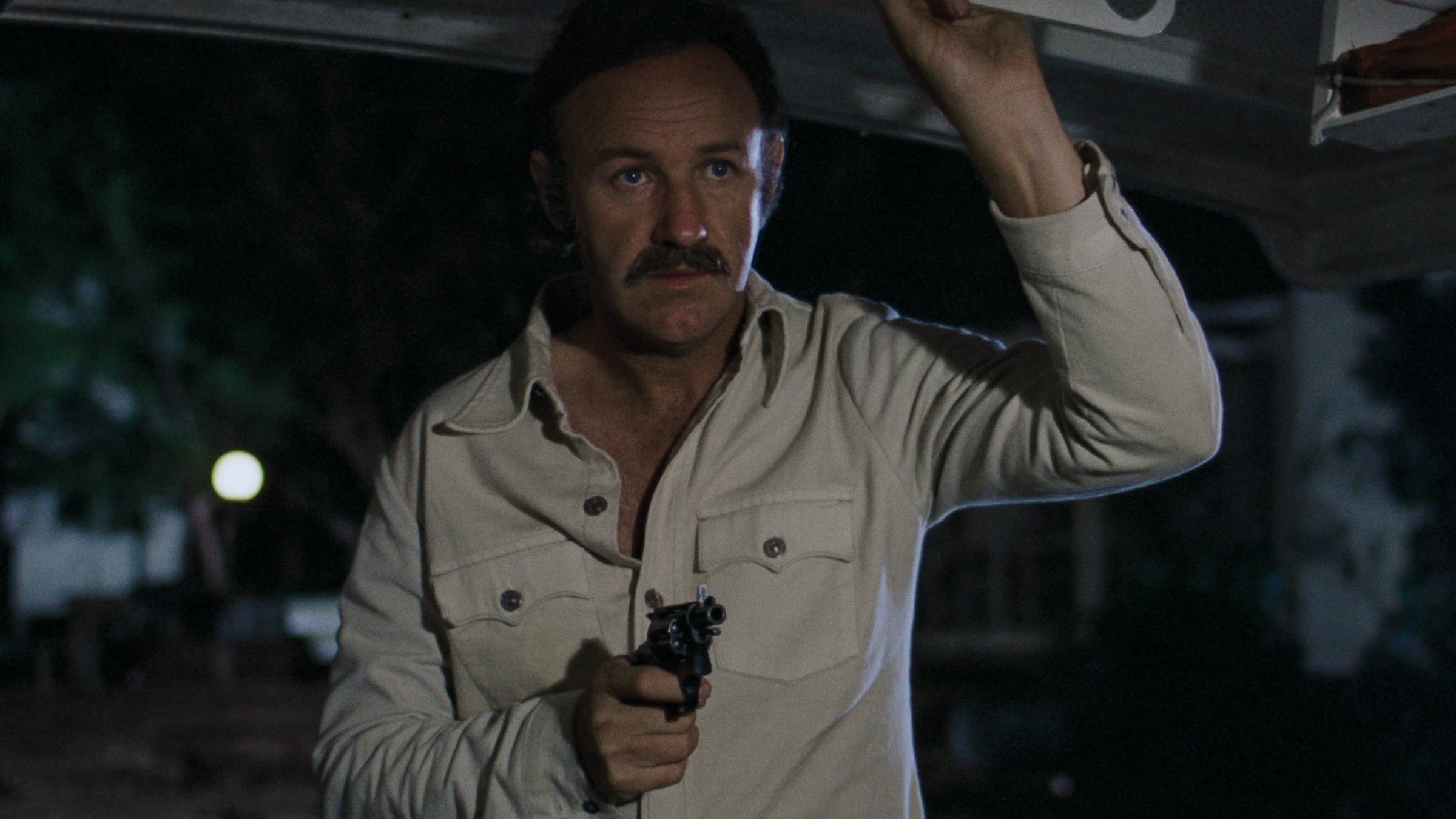RELATED ARTICLE
The Same Old Song: A Guide to Neonoir
By Adam Nayman
The Criterion Collection

Harry Moseby (Gene Hackman), the beleaguered, wary, often overmatched private investigator at the center of Arthur Penn’s 1975 neonoir Night Moves, is a man of few and mostly solitary pleasures, one of which is chess. Teaching himself the game, he likes to study famous old matches, including one that hinged on a brilliant series of maneuvers involving one of the knights—the film’s title is, in part, a play on that, even though the plot itself amounts to a bleak essay on the utter futility of trying to plan three moves ahead. Harry knows he’ll never be a grand master at chess, or probably at anything; in truth, he’s not much for games of any kind, despite being a former football player. Now a rapidly slackening forty years old, he gets no closer to competitive action than the living-room chair from which he glumly watches football. “Who’s winning?” his wife, Ellen (Susan Clark), asks when she walks in. “Nobody,” he mutters. “One side’s just losing slower than the other.”
That line, from Alan Sharp’s packed, zigzagging, tough, and rueful screenplay, comes early in the movie, and it serves as both a thesis statement and a near-perfect encapsulation of the plot that’s about to unfold. It’s a story that places Night Moves alongside films like Alan J. Pakula’s The Parallax View, Robert Altman’s The Long Goodbye, and Stuart Rosenberg’s The Drowning Pool in a category that has come to be known as Watergate-era noir. In the films of that midseventies minigenre, which are shot through with cynicism and hopelessness, a seemingly straightforward case soon engulfs the man who’s probing it in quicksand, plunging him into a world in which corruption, greed, and evil tentacle themselves in so many directions, both outward and upward, that the only possible outcome is overwhelming despair. But Night Moves never succumbs to glib nihilism—and that’s partly because Harry is, for all his flaws, an avatar of decency. Though this isn’t the classic noir of rain-swept city streets and nighttime shadows—the film is set largely in a daylit, bleached-out, exhausted-looking version of Los Angeles—Harry is nonetheless a classic noir hero in two different senses: he’s a fundamentally good if flawed man with his own code of honor, and he’s a cut-off loner doomed to interior solitude.
Though he would never imagine himself as such, Harry is also, within the context of the film, a kind of modern-day knight, hired by a wicked queen—in this case, a middle-aged former actress—to find a runaway princess. It’s a classic Raymond Chandler chapter-one framework—and Harry’s passion for solitary chess study ties him directly to Philip Marlowe—but the details suggest that in the thirty-plus years since Chandler’s heyday, everything has become coarser, cheaper, more vulgar and degraded. The missing girl is sixteen-year-old Delly (Melanie Griffith, in an arresting debut), a child of the post-hippie, anything-goes era who has escaped the clutches of her greedy and uncaring stepmother, who only wants her back because she represents a meal ticket as long as she’s under her roof. Delly may now be in a ménage with her sleazy former stepfather, who has decamped to Key West and has a new girlfriend. Like the chessman he has studied, Harry tends to proceed forward and then sideways, or sideways and then forward—one minute, he’s pushing toward an answer, the next, he’s trying to edge out of harm’s way. He doesn’t know it, but he’s just one piece on a complicated grid, being played by people who are all too willing to sacrifice him. And by the time he realizes what his actual role in the game is, somebody has already shouted checkmate.

